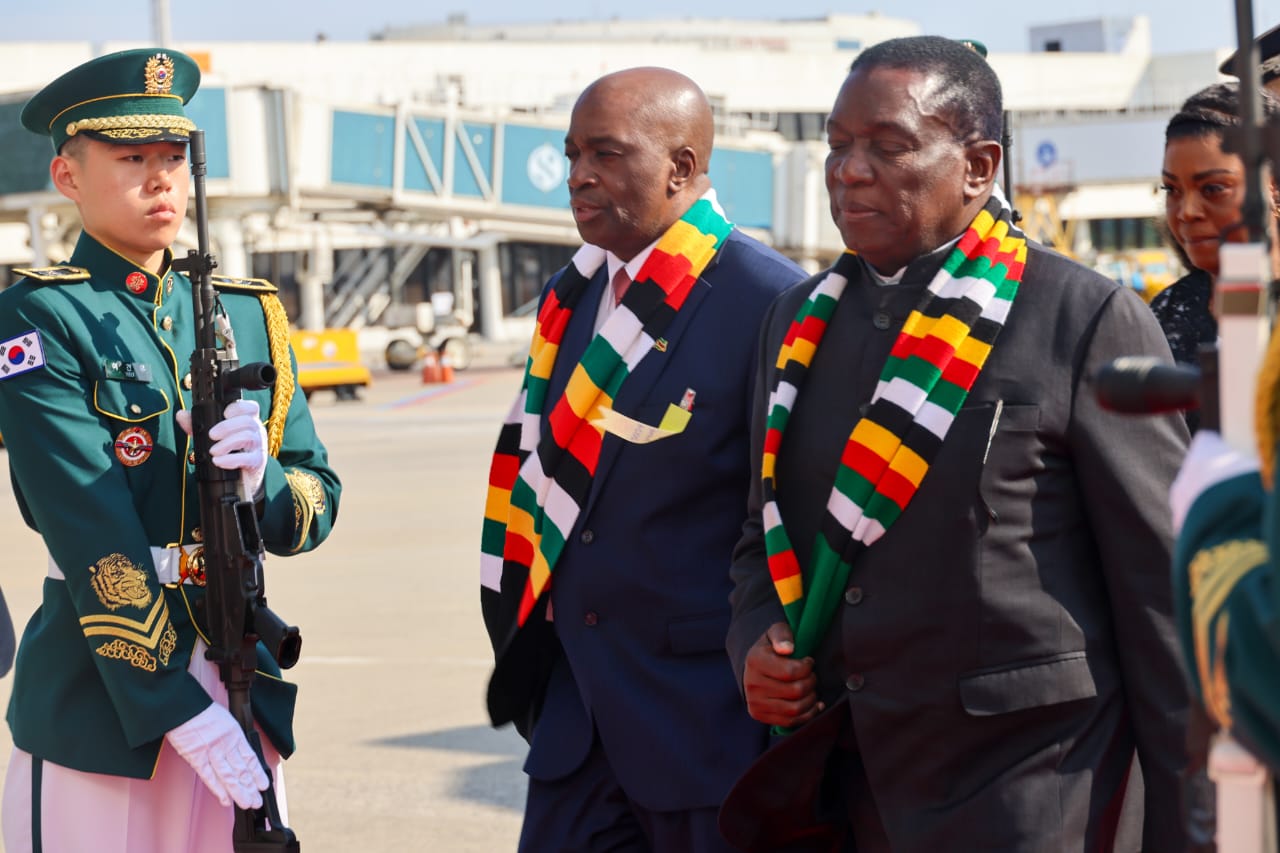President Mnangagwa’s diplomatic efforts at the recent South Korea-Africa Summit, highlighted by his address at the well-attended business forum, are already yielding results.
Numerous South Korean business leaders, particularly in the mining sector, are showing interest through the South Korean embassy in Harare.
Earlier this month, President Mnangagwa joined other African leaders in addressing over 200 South Korean business executives and global economic consultancies at the forum, emphasizing Africa’s potential as an equal partner in global mineral extraction and beneficiation. The forum, themed “Strengthening Food and Mineral Security in Africa,” highlighted the continent’s critical role in these sectors.
South Korea, despite its technological advancement, lacks natural resources such as minerals. Consequently, it relies on third parties for these critical materials. This necessity has driven South Korean businesses to explore direct engagements with resource-rich countries like Zimbabwe.
In an interview, South Korean Ambassador to Zimbabwe, Jae Kyung, shared that the summit’s success has sparked considerable interest from South Korean businesses, especially in mining. “Just a week after the summit, there are increasing enquiries from South Korean businesspeople about opportunities in Zimbabwe,” said Ambassador Park. These inquiries focus on minerals and potential imports, with specific interest in nickel, cobalt, and lithium.
South Korea, a global leader in the food industry and mineral beneficiation, hosts major companies like Samsung, LG, Hyundai, and KIA. With a GDP exceeding US$2 trillion, it ranks 12th globally in economic development. South Korean companies are keen on securing direct access to minerals crucial for manufacturing electric vehicle batteries and other high-demand products.
Ambassador Park noted that South Korea currently sources these minerals through intermediaries in countries like Australia, Canada, China, and parts of Latin America. The summit, the first of its kind in South Korea’s diplomatic history, aimed to change this dynamic. With 48 countries represented, including 25 heads of state, the event marked a significant step towards fostering direct trade relationships.
The summit produced numerous declarations for sustainable shared growth, with 50 government-to-government (G2G) and 35 business-to-business (B2B) memoranda of understanding (MoUs) signed. These agreements are expected to enhance South Korea’s trade and investment with Africa.
Despite this progress, trade figures between South Korea and Africa remain modest. Last year, South Korea’s total trade with African countries accounted for less than 2% of its global trade, around US$20 billion. South Korean investment in Africa is also minimal, at less than US$8 billion, highlighting the need for increased engagement.
Also read: Harare company ‘Creoville Investments’ dragged to court over certificate of sponsorship scam
Ambassador Park emphasized the summit’s role in shifting perceptions and fostering closer ties between South Korea and Africa. “Korean people now know more and better about Africa. The summit provided a strong momentum to change the narrative,” he said.
Beyond mining, the summit also focused on agriculture and technology. A notable outcome was the signing of a G2G MoU on the K-Rice Initiative between Zimbabwe’s Minister of Lands, Agriculture, Fisheries, Water and Rural Development and South Korea’s Minister Song Miryung. This initiative aims to introduce a rice variety suitable for Zimbabwean soils, provide mechanization, improve irrigation, and offer technical support.
In digital transformation, the Tech for Africa Initiative seeks to enhance digital education and training for African youth, including in Zimbabwe, promoting small start-ups and providing digital devices for education.
South Korea has committed to expanding its official development assistance (ODA) to approximately US$10 billion by 2030 and providing US$14 billion in export financing to help South Korean companies invest in Africa.
Asked about South Korea’s success, Ambassador Park attributed it to investing in people, education, tech skills, and talent.
For comments, Feedback and Opinions do get in touch with our editor on WhatsApp: +27 82 836 5828

For comments, Feedback and Opinions do get in touch with our editor on WhatsApp: +44 7949 297606.
